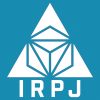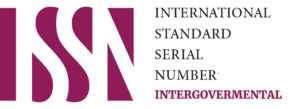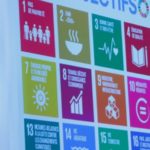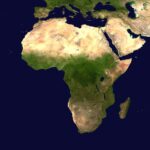Abstract
Given its current Least Developed Country (LDC) and fragile state status, the contribution of Civil Society Organizations (CSOs) is critical for Mali to achieve Sustainable Development Goals (SDGs) 1 (End poverty in all its forms everywhere), SDG 3 (Ensure healthy lives and promote well-being for all at all ages), and SDG 16 (Promote peaceful and inclusive societies for sustainable development, provide access to justice for all, and build effective, accountable, and inclusive institutions at all levels). LDCs lack sufficient qualified human and financial resources and have underperforming political and economic institutions. Corruption and bad governance across sectors are well-known challenges in Mali. In the conflict-affected zones of the north and the center of the country, the Government is unable to provide essential public services in health, education, food and nutrition, water, hygiene, and sanitation. Through his Ph.D. dissertation, Sory Ibrahima Monekata assessed the effectiveness of the UN agencies and their strategies to empower CSOs in Mali. He analyzed the satisfaction level of umbrella CSOs working to achieve SDGs 1, 3, and 16, regarding capabilities that strong CSOs demonstrate, including 1) strategic management, 2) operational management, 3) resource mobilization, 4) sustainable service delivery, 5) partnership and networking, 6) data analysis, 7) advocacy and lobbying, 8) transparency, 9) accountability and 10) resilience. Current strategies and practices of UN agencies and relevant stakeholders aiming at strengthening CSOs in Mali have been identified in the literature review. This article provides insights into the findings, including innovative ways to empower CSOs. The results call for UN Agencies and sustainable development stakeholders to initiate targeted actions aiming to empower CSOs, strengthening their capabilities to achieve SDGs.
- Introduction
In 2015, the United Nations and its member States started the journey toward the 2030 Sustainable Development Goals (SDGs). The empowerment of Civil Society Organizations (CSOs) is critical to achieving the SDGs and their targets in the Least Developed Countries (LDCs) and fragile states such as Mali. [1] LDCs are low-income countries with low human assets confronting severe structural impediments to sustainable development, highly vulnerable to economic and environmental shocks. [2] On the other hand, fragile states have weak or ineffective central governments with widespread corruption and criminality and are known for their sharp economic decline. Furthermore, fragile states have little or no control over their territories and cannot provide essential public services, particularly refugees and internally displaced people. [3] Given the United Nations mandate to promote SDGs in such states as Mali, its agencies play a leading role in achieving SDGs in their respective sectors, empowering governments agencies, the private sector, and CSOs.
The concepts of Civil Society Organizations, Umbrella CSOs, and Empowerment are fundamental within the framework of this article. Frist, CSOs are outside the state and market. Formal and informal organizations include social movements, volunteer organizations, indigenous peoples’ organizations, mass-based membership organizations, non-governmental organizations, community-based organizations, and communities and citizens acting individually and collectively. [4] CSOs are present in public life and express the interests and values of their members or others based on ethical, cultural, political, scientific, religious, or philanthropic considerations. [5] Second, umbrella CSOs perform a coordinating and representative function for CSOs in one or multiple areas or sectors. They federate CSOs for goals they can best achieve through more significant numbers, with specific objectives on specific issues. [6] Third, empowerment is ‘enabling people to exercise more control over their development and supporting them to have the power to make and act on their own choices.’ It includes building individual capabilities, for example, by ensuring that minority groups have access to education. It includes addressing barriers to fair participation in communities, the market, and the political system. It can also mean enhancing the ability of citizens to collaborate through civil society and the democratic process. [7]
The conceptual framework for this study is ten concepts or components of civil society organizations’ empowerment. The first three concepts (strategic management, operational management, and resource mobilization) focus on the internal capabilities of CSOs. The fourth concept, sustainable service delivery, evaluates CSOs’ performance in responding to the needs of vulnerable groups in a sustainable manner. [8] The fifth concept, partnership, and networking highlight the ability of CSOs to work in synergy with relevant stakeholders in their respective sectors. [9] The sixth and seventh concepts respectively cover the data analysis [10] and advocacy and lobbying capabilities of CSOs to influence policymaking or program development processes at different levels. [11] The eighth and ninth concepts, transparency [12] and accountability, [13] go hand in hand and stress the need for CSOs to be good models or organizations openly conducting their businesses, willing to accept the scrutiny of external stakeholders. The last concept, resilience, focus on the ability of CSOs to maintain equilibrium, despite challenging and unstable environments. [14]
Existing research into CSO’s empowerment strategies focuses on their capabilities to achieve SDGs 1, 3, and 16 in Mali is limited. As part of his Ph.D. studies, Sory Ibrahima Monekata conducted a quantitative survey to create a snapshot of how 16 Level 3 and 10 Level 4 umbrella CSOs evaluate their levels of satisfaction with this regard. Four levels of CSOs are identified in the literature review. Level 1 CSOs are low-level community associations, community-based organizations, or cooperatives. Level 2 CSOs are NGOs, human rights associations, workers’ unions, religious organizations. Level 3 CSOs are umbrella organizations per sector (federations, networks, coordination). Furthermore, Level 4 CSOs are platforms of umbrella organizations from different sectors.[15] Additionally, he conducted a literature review regarding current CSO’s empowerment strategies. He further identified innovative CSOs empowerment strategies likely to help Mali achieve SDGs 1, 3, and 16.
The study aimed to assess the effectiveness of current CSOs’ engagement strategies of UN Agencies from the perspective of umbrella organizations working on SDGs 1, 3, and 16; and make relevant policy recommendations regarding CSOs empowerment strategies to achieve SDGs 1, 3, and 16 in Mali. The main findings or insights of the study are highlighted in the following.
The 26 CSOs most influential umbrella Level 3 or Level 4 organizations participated to the assesment. They include the Coalition des Organizations de la Société Civile pour le Repositionnement de la Planification Familiale au Mali (COSC/PF), Coordination des Associations et ONG Féminines du Mali (CAFO), Convergence Malienne contre les Accaparements des Terres (CMAT), Association des professionnels de la presse en ligne (APPEL), Association Malienne des Droits de L’Homme (AMDH), Association des éditeurs de presse privée (ASSEP), Union des radios diffusions et télévisions libres (URTEL), Maison de la presse, Association des Municipalités du Mali (AMM), Réseau des Groupes de Défense des Droits des Femmes et des Filles (RGDF), Fédération Nationale des Associations de santé Communautaire (FENASCOM), Coordination National des Organisation Paysannes (CNOP), Réseau National des Jeunes du Mali (RENAJEM), Conseil National de la Jeunesse (CNJ), Union des Associations et Coordinations d’Association pour le Développement et la Défense des Droits des Démunis (UCADDDD), Réseau des Communautaires Traditionnels pour le Développement (RECOTRADE), Forum des ONG Internationales au Mali (FONGIM), Conseil National de la Société Civile (CNSC), Forum des Organisations de la Société Civile (FOSC), Association des Groupements d’Eglises et de Missions Protestantes Evangéliques au Mali (AGEMPEM), Conférence Episcopale Catholique, Haut Conseil Islamique du Mali (HCIM), Fédération Malienne des Associations de Personnes Handicapées (FEMAPH), Union Nationale des Travailleurs du Mali (UNTM), Confédération syndicale des travailleurs du Mali (CSTM), and Conseil National du Patronat du Mali (CNPM). [16]
Their activities cover all major sectors and issues from the national to the municipal levels, including economic, social, religious, human rights, health, media, women and youth, disability, traditional issues, workers’ rights, the business community, development, and humanitarian assistance, farmers and land issues, etc. The largest group had between 5 and 15 years of experience in development work (42%). 62% of the CSOs involved in the study are Level 3 CSOs, representing umbrella organizations per sector (federations, networks, coordination). 92% contribute to SDG 16, 73% to SDG1, 62% to SDG3, and all Level 4 CSOs contribute to SDG16. 54% of the CSOs are represented at all four levels (national, regional, prefectorial, and municipal), and 46% are represented at the national level. [17]
- UN engagement initiatives with CSOs to achieve SDG 1, 3, and 16 in Mali
The UN System has divided its contributions to SDGs 1, 3, and 16 between the three axes of the UN Sustainable Development Cooperation Framework (UNSDCF) 2020-2024, and each axis is broken down into some outputs to measure progress during implementation. Figure 1: shows more than half of the outputs contributing to SDG 16, with simar contributions for SDG 1 and SDG 3, respectively 28% and 21%. As for the activities, 19% goes to SDG 16, 9% to SDG 3, and only 1% to SDG1. [18]
Figure 1: Contributions of UNSDCF 2020-2024 activities and outputs to SDGs 1, 3 and 16
An analysis of “Figure 2: How many UN Agencies contribute to individual SGDs in Mali?” reveals that UN agencies in Mali work across SDGs, with many agencies contributing to single SDGs. It also indicates that UN System does not contribute to achieving SDG 9 and SDG14 in Mali.
Figure 2: How many UN Agencies contribute to individual SGDs in Mali?
3.1 CSOs empowerment regarding SDG 1
UNICEF [19], UN Women [20], the International Organization of Migration (OIM) [21], World Food Program, [22] and the Office of the United Nations High Commissioner for Human Rights (OHCHR) [23] are strengthening ties and building the capacity of CSOs to achieve development or humanitarian outcomes for their respective targets within the framework of SDG 1. For instance, OHCHR argues that “a strong and autonomous civil society, able to operate freely, and knowledgeable and skilled concerning human rights, is a key element in securing sustainable human rights protection at the national level.” To strengthen its partnership with CSOs, OHCHR has developed a comprehensive guide titled: “Working with the United Nations Human Rights Program: A Handbook for Civil Society.” [24]
3.2 CSOs empowerment regarding SDG 3
WHO and UNFPA are the two leading UN agencies empowering CSOs to achieve SDG 3 in Mali. WHO has undertaken to build the capacities of the executives (presidents and executive officers) of the regional committees of community health associations members of FENASCOM, the central umbrella CSO in Mali’s health sector on political dialogue advocacy. Regional workshops were planned after that to train the executives of FENASCOM branches in all regions. This training series aimed to equip these civil society executives with skills to do better advocacy to expedite the implementation of the health financing strategy adopted by the Government, thus facilitating access of populations to health care. [25] UNFPA highlights the need for policy dialogue and advocacy to remove legal and political barriers to accessing services and rights, especially in sexual and reproductive health, with strong involvement of Civil society, namely the National Coalition of Civil Society Organizations for the Repositioning of Family Planning. [26]
3.3 CSOs empowerment regarding SDG 16
UNDP, UNOCHA [27], and MINUSMA are amongst the leading UN agencies empowering CSOs to achieve SDG 16 in Mali at both national and intranational levels. [28] UNDP promotes capacity-building tools, such as the Civil Society Index (CSI) developed by CIVICUS to empower CSOs in four dimensions: structure, space or environment, values of civil society, and impact.[29] Furthermore, UNDP is creating space for Malian Level 4 umbrella CSOs to participate in the national policy dialogue within Mali’s five-year poverty reduction strategy paper (CREDD) framework. In the review process of CREDD 2015-2018 and the development of CREDD 2019-2023, UNDP provided funding and technical assistance to three umbrellas CSOs included in the current study, namely FONGIM, CNSC, and FOSC, to jointly organize three days “National Civil Society Consultation for the integration of the SDGs in CREDD 2019-2023 and the Mali 2040 Prospective Study”. The first goal of this national CSOs consultation was to formulate, with the collaboration of the CSLP Technical Unit, a joint positioning of Malian civil society in terms of strategic priorities by theme as part of the development of CREDD 2019-2023 and the Mali 2040 Prospective Study. The second goal was to align the strategic priorities defined in CREDD 2019-2023 and the Mali 2040 Prospective Study on the SDGs and their targets at the national level. [30] MINUSMA is a leading agency on conflict prevention and resolution, promotion of peace and stability in Mali, with Security Council Resolution 2531 renewing MINUSMA’s mandate under Chapter VII of the United Nations Charter.
- Main findings of the assessment of current CSOs empowerment strategies of UN agencies in Mali
4.1 Main obstacles and threats to CSOs empowerment strategies to achieve SDGs 1, 3, and 16 in Mali
Limited access to resources is the primary internal obstacle to achieving SDGs 1, 3, and 16 for CSOs in Mali (77%). A health sector umbrella CSO regrets that their umbrella association does not benefit from a substantial government subsidy, despite their recognition as a public utility organization (with 1450 grassroots community associations, 11 regional branches, and 70 local branches). The little financial support is seen as a hindrance to their capacity-building capabilities. They cannot strengthen their members and branches on their roles and responsibilities, particularly in SDGs 1, 3, and 16. The ignorance of SDGs by CSOs and the unaccountability of CSOs regarding SDGs are the second biggest obstacles (42%). The study reveals that CSOs have low mobilization capacity, few technical and financial partners, lack of knowledge of the SDGs, and accountability. They are left to themselves regarding the SDGs because they lack empowerment strategies and political initiatives. Conflicts and insecurity (88%), followed by the instability of political institutions (81%), are the primary external threats to achieving SDGs 1, 3, and 16 for CSOs in Mali. Various cyclical crises and constant changes of governments do not allow CSOs to hold various governments accountable regarding their commitments to achieve the SDGs. Newcomer governments mainly state that priority is security. UN Agencies promote the inclusion of SDGs 1, 3, and 16 and their relevant targets in CSOs programs and projects in Mali. They encourage CSOs to assess, document, and disseminate their achievements or contributions to these SDGs. However, with the exact percentages of participants agreeing or disagreeing (38%) and a considerable percentage ignoring any such initiatives (up to 19%), increased efforts are needed for UN agencies to achieve effectiveness. Lack of information about SDGs or any empowerment strategy, the lack of partnership and consultation framework, and the absence of technical capacity and financial means made available to CSOs are frequently mentioned by CSOs respondents as obstacles or threats to their achievement of SDGs 1, 3, and 16. UN agencies carry out activities in line with the SDGs in partnership with Malian CSOs and encourage regular evaluations of CSOs’ development work, allowing them to determine their contributions to SDGs promptly. One argues that “all these agencies have one main objective, the capacity building of CSOs to face development,” another states that when UN agencies fund projects, they provide technical support allowing CSOs to document their contributions to the relevant SDGs. One concludes: “We feel the will of the United Nations to ensure that the SDGs are respected by the Malian State thanks to the watchdog role of civil society.” [31]
4.2 Assessment of current empowerment strategies of UN Agencies by Umbrella CSOs
The dissatisfaction rate (58%) is the same regarding the current strategies of UN Agencies to strengthen the strategic and operational management or resource mobilization capabilities of CSOs in Mali. CSOs ignore the procedures for accessing technical or financial support from United Nations agencies or complain about too much cumbersome or complexity in the procedures. Disbursement of funds to carry out an activity by a CSO is very slow and very complicated with UN Agencies. UN agencies do not establish contact between CSOs and other potential partners for technical and financial support. CSOs argue that flexibility is needed to promote their participation and contribution to SDGs. One commentator mentions that some agents of UN Agencies indulge in unhealthy practices, trying to require bribes for CSOs to access UN funding under their control to realize SDG-related activities. The majority of CSOs are dissatisfied (46%) with the current strategies of UN Agencies to strengthen the partnership and networking, data analysis, or the advocacy and lobbying capabilities of CSOs in Mali. Some CSOs have no contact with UN agencies and do not know what they are doing in Mali. Current networking experiences are sporadic and not sustainable because of the lack of support and accompaniment. UN agencies tend to involve more prominent or older organizations in their networking initiatives, while local organizations imbued with community realities are not always involved in decision-making processes. Some further argue that networking initiatives are implemented by affinity with specific UN agents’ complicity. CSOs claim they have never benefited from data analysis capacity building and ignore any such initiatives of UN Agencies. They further stress the need for high-level quality training for CSOs to know better and understand the missions and objectives of the SDGs. There is no synergy between CSO at all times regarding data processing. As a result, they do not have quantitative or qualitative data concerning specific current affairs subjects or certain themes. “Everyone jealously guards their data.” One respondent recognizes the will of partners (CSOs, UN) to strengthen the advocacy and lobbying capabilities of CSOs in Mali through seminars and Training. CSOs claim they have never understood that the United Nations agencies have strategies to promote transparency. They further suggest that transparency and accountability should begin with the United Nations even vis-à-vis CSOs in its strategies, which is not what they perceive. Regarding current strategies of UN Agencies to strengthen the resilience and sustainable service delivery capabilities of CSOs, the dissatisfaction rates are 42% and 38%. With the various cyclical crises, CSOs have had strategies adapted to the socio-security situation of the country. Malian CSOs survive in extreme precariousness. Moreover, they ignore any strategy or approach aiming at strengthening CSOs’ resilience. Therefore, United Nations agencies must strengthen their resilience in the context of the political, security, and economic crisis. [32]
4.3 Main weaknesses and obstacles to UN empowerment strategies for CSOs
CSOs have identified two main weaknesses of current CSOs’ empowerment strategies of UN Agencies in Mali, including irrelevant CSO empowerment strategies (69%), followed by weak coordination amongst UN Agencies (35%).
Figure 3: Main weaknesses of current UN empowerment strategies for CSOs in Mali
CSOs regret that the expertise within the United Nations is not sufficiently exploited by Malian CSOs, which is also true for experts working with the CSOs within government departments. Some feel the types or models of empowerment are imposed on them, and do not always match their expectations, realities, or needs. What even makes their empowerment easy is almost entirely relayed in the background by financial partners. [33]
Figure 4: Main obstacles to current UN empowerment strategies for CSOs in Mali
The instability of political institutions (85%) is the main obstacle to the current CSOs’ empowerment strategies of UN Agencies in Mali, followed by security threats (73%). Lack of coordination amongst CSOs and hostile policy environment comes next (46%). Some institutions favor supporting CSOs, but when there is a regime change, the funds are no longer localized in most cases. Religion, culture (custom, and us) are additional obstacles to implementing the SDGs. [34]
4.4 The need for innovative CSOs empowerment strategies by UN agencies
Experience has shown that the funds allocated to the Government are given partially and unfairly to CSOs. The funds are no longer even localized when the implementation of the program or project begins. Therefore, the best strategies for UN Agencies to empower CSOs to achieve SDG 1, 3, and 16 in Mali by 2030 are umbrella CSOs empowering their members (62%), followed by UN Agencies empowering CSOs in a synergetic and coordinated manner (50%).
Figure 5: Better CSO empowerment strategies in Mali
Individual UN agencies empower CSOs in their respective sectors, and stronger CSOs empower weaker CSOs to come next, respectively with 46% and 35%.
Figure 6: Priority areas for CSO capacity building in Mali
The three components of CSOs’ empowerment that need more attention for UN Agencies to successfully empower CSOs to achieve SDG 1, 3, and 16 in Mali are resource mobilization (88%), transparency (54%), advocacy, and lobbying (46%), with strategic management (42%) closer to the third component. When empowering CSOs to achieve SDGs 1, 3, and 16 in Mali, UN Agencies should focus their efforts on Level 3 CSOs (Umbrella organizations per sector: federations, networks, coordination), (62%), followed by Level 4 CSOs (Platforms of umbrella organizations from different sectors), (38%) and Level 1 (Community associations, community-based organizations, or cooperatives), (35%). One respondent suggests that efforts should focus on almost all CSOs levels, if necessary, because each level has its specificities. They further stress that the key players in achieving the SDGs are the grassroots communities that must be sensitized, empowered to achieve these goals. With innovative CSOs empowerment strategies implemented by UN Agencies, 42% of the respondents believe, while 31% are skeptical that Mali will successfully meet SDG 1, 3, and 16 by 2030. The pessimistic group argues that if the same procedures and methods continue without change, it is uncertain to achieve most goals. They also view the socio-security and the political situation in Mali as a hindrance for the country to achieve the SDGs by 2030 unless it is by miracle. As for the optimists suggest that if the recommendations were taken into account, with all these innovative CSO empowerment strategies implemented on time, Mali could achieve the SDGs by 2030. This group further considers different pressures on the Government as an incentive for them to have specific preliminary results, and therefore, contribute to achieving the SDGs. SDGs 1, 3, and 16 can be achieved if development stakeholders work and, possibly transparently, strengthen partnerships, consolidate funding, and promote accountability in partnerships. [35]
- How empowered CSOs of different levels can add value to development and humanitarian work
As one respondent to the study puts it, all CSOs should be empowered because they have different roles and responsibilities, although Level 3 and Level 4 CSOs need urgent attention in Mali. The four case studies provided below illustrate how empowered CSOs of different levels can add value to the development and humanitarian work.
5.1 Empowered Level 1 CSOs: A case study of Benkola association in Mali
Level 1 CSOs can achieve excellent results at the community level and directly impact vulnerable groups in communities, particularly in remote areas or rural settings, as illustrated in the case study of Benkola covered by Mr. Sory Ibrahima Monekata in his thesis. Benkola is a flourishing community association in the rural municipality of Dioila, Koulikoro region of Mali. Benkola contributes to the success of good governance, development, and humanitarian efforts in many ways in the municipality of Digital. They increase the tax collection rate and take the lead in awareness-raising health and human rights issues in line with local and traditional contexts. They promote successful income generative activities with revenues directly improving the lives of women and children. They increase school attendance for students of low-income families and monitor the physical presence of teachers in remote rural schools. Although they do not have the technical and financial skills of Level 2, 3, or 4 CSOs, their knowledge of geography, worldview or mindsets, tradition, religion, and the history of their people make them the best mobilization and awareness-raising stakeholders of local development or humanitarian efforts. [36]
5.2 Empowered Level 2 CSOs: A case study of the Bangladesh Rural Advancement Committee (BRAC)
From a small village organization or Level 1 CSO, BRAC has grown into the most extensive development organization globally with successful programs to tackle poverty fully effectively. It has become the number one non-governmental development organization or Level 2 CSO globally, which stands out by its innovation, impact, and outstanding governance. The organization has scaled up its interventions in 11 other countries, reaching out to millions of people in Afghanistan, Tanzania, Uganda, South Sudan, Sierra Leone, Liberia, Myanmar, Nepal, Kenya, Rwanda, and the Philippines. BRAC has also opened its offices in developed countries to support its fundraising and partnership efforts, including the United States of America, the United Kingdom, and the Netherlands. [37]
BRAC’s interventions could be divided into four program areas, with multiple projects associated with each program. The first program is SOCIAL DEVELOPMENT, with sub-programs including eliminating extreme poverty, expanding financial choices, employable skills for decent work, climate change and emergencies, gender equality, universal access to healthcare, pro-poor urban development, investing in the next generation. These eight programs are implemented through 92 projects or interventions divided between 17 areas: ultra-poor graduation, Integrated development, Microfinance, Skills development, Migration, Climate change, Agriculture and food security, Humanitarian program, Gender justice and diversity, Community empowerment, Human rights, and legal aid services, Strengthening Bangladesh’s RMG Sector, Health, nutrition and population, Water, sanitation and hygiene, Urban Development, Education and Youth platform. Through its second program, BRAC initiated 12 innovative SOCIAL ENTERPRISES to promote agriculture and food security. These social enterprises include Aarong working with 65,000 artisans across Bangladesh, BRAC Dairy supporting 50,000 farmers across Bangladesh, BRAC Seed and Agro, BRAC Artificial Insemination employing a total of 2,200 trained insemination workers across the country, BRAC Nursery, BRAC Sericulture promoting rural women, BRAC Fisheries, BRAC Recycled Handmade Paper, BRAC Cold Storage supporting potato farmers and processing industry in Bangladesh, BRAC Salt supplying iodized salt to fight deficiencies in rural areas, BRAC Printing Pack producing flexible packaging material for food items, BRAC Sanitary Napkin and Delivery Kit to help women attend work and school regularly, as well as to facilitate safe births. The third program covers INVESTMENTS through which BRAC is investing for social impact. Initiatives within this program framework include BRAC Bank, with over 220,139 million of loans disbursed to date, making it the country’s largest SME financier, making more than 410,817 dreams come true. Delta BRAC Housing (DBH) Finance Corporation Limited is the largest institution in real estate finance and is considered a pioneer and market leader in the private sector housing finance sector. BRACNet is connecting the country through a nationwide wireless network, bringing affordable internet to everyone. Guardian Life Insurance uses innovation, proper risk management, and prudent investment mechanisms to ensure maximum financial benefits for clients. IPDC Finance Limited is playing a leading role in the development of the private sector in the country. BRAC IT Services is innovative, providing end-to-end technology solutions. Its flagship product is the microfinance solution SbiCloud, successfully running in several countries, including Uganda, Sri Lanka, Afghanistan, Pakistan, South Sudan, Myanmar, the Philippines, and Tanzania, with a launch planned for Bangladesh. BRAC Tea Estates is a model estate that improves workers’ lives with healthcare, education, sanitation, and safe drinking water. [38]
In addition to the above-mentioned development and humanitarian interventions, BRAC University is operating its educational programs through more than ten institutes and schools, including BRAC Business School, James P Grant School of Public Health, Department of Architecture, Postgraduate Programs in Disaster Management, Department of Mathematics and Natural Sciences, School of Humanities and Social Sciences, Department of Economics and Social Sciences, School of Humanities and Social Sciences, Department of English & Humanities, School of Humanities and Social Sciences, Department of Pharmacy, BRAC Development Institute, Institute of Educational Development, BRAC Institute of Languages Centre for Peace and Justice (CPJ). Under the leadership of its board of trustees, Syndicate, Academic Council, BRAC University and its schools have partnered with more than 160 reputed academic and research institutions worldwide to enhance their educational experience by learning from others. [39]
5.3 Empowered Level 3 CSOs: The Ethiopian Civil Society Health Forum (ECSHF)
The Ethiopian Civil Society Health Forum (ECSHF) is one of the seven forums operating under the Consortium of Christian Relief & Development Associations (CCRDA). ECSHF has more than 140 members CSOs. It was established to represent and coordinate the collective efforts of CSOs to achieve national health sector development together. The Forum elected eight steering committee members who play a leadership role and direction for the Forum. Since its establishment, the Forum has registered remarkable achievements such as conducting panel discussions, workshops, and Training, developing the CSOs directory and website, participating in African Vaccination Week, and representing various regional forums. ECSHF is a crucial player of the National Health Sector Development Program (HSDP) Annual Review Meetings. [40]
The main objective of ECSHF is to facilitate and coordinate the collective efforts of CSO to achieve the National Health Sector Development Program and Strengthening Health Systems in Ethiopia. To achieve such a goal, the organization has six specific objectives: 1) Engage members of the Forum to be actively involved in the policy dialogue and exchange of information; 2) Enhancing the collaboration between the government and civil society organizations in Ethiopia; 3) Building the capacity of members by organizing different Training, workshops, and panel discussion sessions; 4) Improving networking, partnership and collaboration between CSOs to reduce duplication of efforts; 5) Promoting the contribution of CSOs in the sector; 6) Improving Forum’s capacity, representation, and visibility. [41]
To achieve its goals and objectives, ECSHF has adopted the following major implementation strategies. First, the organization uses CCRDA’s regional coordination office as a front-line office to organize regional events. Second, it invites the Ministry of Health, Charity and Society Agency, Media, development partners, and regional GOs on policy discussions. Third, ECSHF promotes documentation of best practices and lesson learning amongst its members and stakeholders of the health sector. Fourth, the organization builds synergy among CSOs. Fifth, it uses different means of communication to promote activities. Sixth, ECSHF promotes strategic partnerships with donors, the private sector, and other similar networks. [42]
5.4 Empowered Level 4 CSOs: Case studies of the Uganda National NGO Forum (UNNGOF) and the Consortium of Christian Relief and Development Associations (CCRDA)
The Uganda National NGO Forum (UNNGOF) and the Consortium of Christian Relief and Development Associations (CCRDA) of Ethiopia are two models of well-structured and well-governed Level 4 CSOs. They represent a broad-based national body for diverse CSOs to come together to pursue a collective agenda of engagement with the Government and other development actors.
UNNGOF is an independent and inclusive national platform for NGOs in Uganda aiming at creating space for NGOs to reflect, strategize and take action on matters of mutual interest. It is a membership organization with over 650 members across the country, including international, national, faith-based networks and district organizations. UNNGOF has established policies and procedures for accountability, formal registration for members, operationalized a code of conduct, amended its Constitution by remobilizing members, developed a three-year rights-based Strategic Plan, and set up district forums for support at the district level and to the Secretariat. UNNGOF’s vision is “A coherent, respected, well-informed NGO sector in Uganda; actively contributing to citizens’ well-being and safeguarding their rights.” Its mission is “To provide a sharing and reflection platform for NGOs to influence governance and development processes in Uganda, and enhance their operating environment.” The platform has three main objectives: 1) An informed NGO sector that possesses necessary information and capacity to engage in and contribute to development processes effectively; 2) A networked NGO sector with strong internal and external linkages to other actors; 3) An engaged and accountable NGO sector that engenders respect from Government and citizens, for the difference it makes to society. The following values define Uganda National NGO Forum’s identity and position within civil society: social justice and equity, gender and diversity, autonomy, accountability, collective action and solidarity, unity in diversity, and self-sufficiency. UNNGOF’s programs have a Civil Society Strengthening component working to enhance the capacities of Uganda’s civil society so that they can deliver their core mandate and influence development policies and practices. It achieves such a goal through capacity development, promoting civic space and governance monitoring, supporting policy advocacy and engagement, and training opportunities for members. UNNGOF is a not-for-profit organization, and funding for its work is from both internal and external sources – local collections from its membership and grants from development partners and other supporters. Over the years, UNNGOF has received financial support from development partners like DFID, DANIDA, UNDP, DGF, and Ford Foundation, among other things, to undertake her mandate. Key partners of UNNGOF include Forums, Wilde Ganzen Foundation, Oxfam, Change the Game Academy, ICCO Cooperation, Ford Foundation, Democratic Governance Facility, Civicus, USAID. [43]
CCRDA has 367 member organizations, including both Ethiopian resident’s charities and foreign charities. CCRDA is an indigenous non-profit umbrella organization, serving as a collective vision and active Forum. As its mission, CCRDA strives to strengthen members’ efforts towards effective national and community development through advocacy, networking, partnership, and capacity strengthening. The organization has six core values: humanitarianism, transparency and accountability, diversity, inclusiveness, service quality, leading by example, and rights-driven. Unlike other NGOs operating in Ethiopia, it does not implement any program; but instead provides technical, financial, and material support to development projects of members and partners. It allows resource mobilization and the sharing of experiences for effective and sustained impact. CCRDA builds the capacity of CSOs to ensure efficiency and quality are met, efforts are not duplicated, and lessons are learned. CCRDA envisions a poverty-free Ethiopia with vibrant CSOs and assured social justice. The organization has five strategic objectives: a) enable members to become leaders of civil society in networking, advocacy, and partnership building at all levels, b) enhance the professional and institutional capacity of CCRDA members to engage in rights-based programs and be credible CSO leaders, c) strengthen member CSOs to create an all-rounded, empowered, questioning community/society, d) strengthen the communication, information sharing, and knowledge management system to make CCRDA an information hub of the CSOs, e) improve CCRDA’s coordination, institutional and technical capability to become a leading civil society organization that inculcates civil society culture. Seven sectorial forums operate under CCRDA, including the Ethiopian Civil Society Health Forum (ECSHF), Food Security & Environment Forum, National Urban Development Forum of NGOs (UDF), Water & Sanitation Forum, Women, Children & Youth Forum, The Gender Forum, and the Humanitarian Forum. [44]
CCRDA develops and implements program and institutional capacity building for its members, with services including mentoring/backstopping, limited staff secondment for start-up local members, technical and financial support for fundraising, promotional activities, project development, and monitoring, organizational development of members, organization of apprenticeship and experience sharing visits, facilitation of members’ engagement in community empowerment, and, facilitation of mainstreaming of cross-cutting issues. CCRDA provides various training programs that focus on building the capacities of staff of CSOs and government partners. Training programs are developed in partnership with local and international development consultants. Programs are also enriched with on-the-ground experiences of members and other CSOs, including donor and government partners. CCRDA’s holistic capacity development approach is packaged to include leadership development, organizational development, good governance, and lobbying skills. Topics such as constituency building, development policy engagement, leadership, and other cross-cutting and thematic issues are part of the training programs. CCRDA further provides institutional strengthening support to its members in professional project secondment, equipment and facilities supply, and financial assistance for associated Training. The organization undertakes networking, partnership, and policy engagement and dialogue, serving as a voice for its members at national and international forums. It has developed and is implementing a Code of Conduct for CSOs in Ethiopia, which has led CSOs to a level where accountability, transparency, and commitment to serving those in need and supporting development efforts are the basis of CSO’s engagement. CCRDA contributes to the development of partnerships and ensures the regional presence of CSOs while promoting information management and exchange. It also conducts research and in-depth studies, with reports and research findings further disseminated for better awareness and contribution to the development of existing knowledge. CCRDA develops and maintains databases of members, donors, consultants, and other actors in Ethiopia. These databases are regularly updated to keep the services accessible to members and stockholders. Finally, the organization provides web space and Training for member organizations. [45]
- Conclusion and recommendations: an urgent call for innovation in CSO empowerment practices by UN agencies in Mali
Mali’s current failure to achieve SDG 16 and its targets is hindering the achievement of SDG 1 and SDG 3 and their targets all around the country. With a government that is not in control (SDG 16) of about two-thirds of the territory (the center and the north), without a strong involvement of civil society in Malian development efforts, it is almost impossible to ensure the continuity of essential social services (SDG 1 and SDG 3), such as poverty eradication, education, health, food and nutrition, water, hygiene, and sanitation, etc. The endemic corruption added to the manipulation of justice, political and economic institutions, and the electoral process by rulers, combined with bad governance and other unhealthy practices in the state apparatus, have led to popular uprisings leading to five (5) coups d’Etat in sixty years of independence in Mali, between 1960 and 2021. The Malian State has lost its institutional credibility in the eyes of most Technical and Financial Partners over the years. It is hardly seen as a reliable steward of official development assistance resources. This bankruptcy of the institutions of the Malian nation is somehow linked to the weakness of civil society entities at different levels. In particular, our study reveals that Level 3 and Level 4 CSOs, play an interface role with the Government and its Technical and Financial Partners through advocacy and lobbying in sectoral and national policy processes. Nonetheless, CSOs do not have the human, material, and financial resources necessary and sufficient to contribute to building a strong and credible Malian State. With their current resources, CSOs are unable to provide the technical and legal insights or inputs in data analysis and policy processes in a way that obliges the Government to respect human rights, democratic and good governance principles, and which can mobilize resources from the private sector and official development assistance to meet the SDGs by 2030 for Mali. [46]
The findings of the study lead to the following recommendations for policy, practice, or research:
- Better coordinate CSOs engagement strategy and policies for UN Agencies, with a particular focus on a dynamic partnership and networking with Level 3 and Level 4 umbrella organizations.
- Establish a pooled funding for UN Agencies to jointly finance a ten-year CSOs empowerment program into two phases, each lasting five years, with other Technical and Financial Partners of Mali, encouraged to contribute. Resources to leverage such a fund could come from CSO’s empowerment components built-in all UN Agencies’ development or humanitarian programs or projects in Mali.
- Develop and apply newer and more relevant CSOs capacity-building toolkit per UN Agency and for the Resident Coordinator’s Office.
- Implement studies about how the Government and UN Agencies can better document and disseminate CSOs’ contributions to SDG achievement in their respective sectors via Level 3 and Level 4 CSOs, in line with national, regional, prefectorial and municipal plans in terms of data processing.
- Conduct studies to develop ways for Level 3 and Level 4 umbrella CSOs to contribute to establishing a national online platform for monitoring and ensuring accountability of CSOs interventions at the municipal, prefectural, regional and national levels.
- Carry out studies to develop strategies for the government and UN Agencies to strengthen CSOs’ capacities to better contribute to achieving SDG 16, given the instability of political institutions, the general insecurity, and the effectiveness of CSOs in achieving peace and delivering basic social services where the Government does not have access.
As the findings of the study suggest, by making CSOs empowerment a priority, especially Level 3 and Level 4 CSOs, the UN System and its agencies will contribute to building a peaceful and resilient Malian nation, which achieves relevant SDGs and their targets by 2030. These capacity-building efforts should strategically include all sectors, such as the economic, social, religious, human rights, health, media, women and youth, disability, traditional issues, workers’ rights, the business community, development and humanitarian assistance, farmers, and land issues, etc.
REFERENCES
[1] General Assembly, United Nations. Transforming our world: the 2030 Agenda for Sustainable Development. United Nations, 2015. [2] UNCTAD. UN list of least developed countries. https://unctad.org/fr/node/2972 (Accessed July 25th, 2021). [3] The Fund for Peace. Fragile States Index 2021. https://fragilestatesindex.org/global-data/ (Accessed July 20th, 2021). [4] UNDP, United Nations. UNDP And Civil Society. https://www.undp.org/partners/civil-society-organizations. Accessed July 24th, 2021. [5] Civil Society Team, World Bank. Consultations with Civil Society: A Sourcebook Working Document February 2007. United States: World Bank, February 2007. [6] UNDP. UNDP and Civil Society Organizations: A Toolkit for Strengthening Partnerships. United States: UNDP, 2006) [7] Department for International Development. DFID’s Empowerment and Accountability Programming in Ghana and Malawi. United Kingdom: Independent Commission on Aid Impact, October 2013. [8] Duclaux-Monteil, Cécile. Module 1: Le concept du développement durable. Québec, Canada : Institut de la Francophonie pour le Développement Durable, 2016. [9] UNESCO, Unted Nations. The Resource Mobilization Guidebook. Paris, France: UNESCO, 2020. [10] General Secretariat, United Nations. Data Strategy of the Secretary-General for Action by Everyone, Everywhere with Insight, Impact and Integrity 2020-2022. New York: United Nations, May 2020. [11] Joanna Watson. Advocacy toolkit, SECOND EDITION: Roots 1 and 2. United Kingdom, Tearfund, 2015. [12] Transparency International. Transparency. https://www.transparency.org/en/corruptionary/transparency . Accessed July 31st, 2021. [13] Fonds des Nations unies pour l’enfance (UNICEF). Manuel de plaidoyer : Orienter les décisions visant à améliorer la vie des enfants, Première édition. New York, Etats Unis : UNICEF, Octobre 2010. [14] Entité des Nations Unies pour l’égalité des sexes et l’autonomisation des femmes (ONU-Femmes). Plan stratégique 2018-2021. (New York, USA : ONU Femmes), 6.
[15] Conseils et Appui pour l’Education à la Base, Ebenezer International. Procédure de sélection pour des services de conseil et de soutien (SCS) pour Guinée et Mali : offre pour les lots 1 et 2. (Bamako, Mali : Octobre 2020), 7. [16,17, 31-46] S. I. Monekata, “UN engagement with civil society organizations in Mali: assessment and policy recommendation in light of 3 critical SDGs,” Ph.D Thesis, Euclid University, 2021. [17] Nations Unies. Cadre de Coopération des Nations Unies pour le Développement Durable (UNSDCF) 2020-2024 Mali. Bamako, Mali : Système des Nations Unies au Mali, Avril 2020. [18] Fonds des Nations unies pour l’enfance (UNICEF). Manuel de plaidoyer : Orienter les décisions visant à améliorer la vie des enfants, Première édition. New York, Etats Unis : UNICEF, Octobre 2010. [19] Entité des Nations Unies pour l’égalité des sexes et l’autonomisation des femmes (ONU-Femmes). Evaluation du portefeuille pays : Rapport final, République du Mali 2014-2019. Bamako, Mali : ONU Femmes, 22 mai 2019. [20] Organisation internationale pour les migrations (OIM). Stratégie institutionnelle de l’OIM en matière de migration et de développement durable. Genève, Suisse : OIM, 15 novembre 2019. [21] World Food Program Mali. Plan Stratégique Pays Mali 2020 – 2024. Rome, Italie : WFP, 12 Novembre 2019. [22] Office of the United Nations High Commissioner for Human Rights. Working with the United Nations Human Rights Program: A Handbook for Civil Society. New York and Geneva : OHCHR, 2008. [23] Organisation internationale pour les migrations (OIM). Stratégie institutionnelle de l’OIM en matière de migration et de développement durable. Genève, Suisse : OIM, 15 novembre 2019. [24] Organisation Mondiale de la Santé (OMS). Le travail de l’Organisation Mondiale de la Santé au Mali : Rapport Annuel 2018. Bamako, Mali : OMS, 2018. [25] United Nations Population Fund (UNFPA). Plan stratégique du FNUAP pour 2018-2021. New York, Etats Unis : Fonds des Nations Unies pour la population, Septembre 2017. [26] Bureau de la coordination des affaires humanitaires (OCHA). Plan de réponse humanitaire Mali : cycle de programmation humanitaire 2020. Bamako, Mali : OCHA, Mars 2020. [27] FONGIM, CNSC, FOSC. Termes de référence, Consultation Nationale de la société Civile pour l’intégration des ODD dans le Document Post-CREDD et l’Etude Prospective Mali 2040. Bamako, Mali : FONGIM, Octobre 2018. [28] UNDP. United Nations Development Program (UNDP). UNDP Strategy on Civil Society and Civic Engagement. New York, United States: UNDP, 1 October 2012. [29] FONGIM, CNSC, FOSC. Termes de référence, Consultation Nationale de la société Civile pour l’intégration des ODD dans le Document Post-CREDD et l’Etude Prospective Mali 2040. Bamako, Mali : FONGIM, Octobre 2018.
Publisher information: The Intergovernmental Research and Policy Journal (IRPJ) is a unique interdisciplinary peer-reviewed and open access Journal. It operates under the authority of the only global and treaty-based intergovernmental university in the world (EUCLID), with other intergovernmental organizations in mind. Currently, there are more than 17,000 universities globally, but less than 15 are multilateral institutions, EUCLID, as IRPJ’s sponsor, is the only global and multi-disciplinary UN-registered treaty-based institution.
IRPJ authors can be assured that their research will be widely visible on account of the trusted Internet visibility of its “.int” domain which virtually guarantees first page results on matching keywords (.int domains are only assigned by IANA to vetted treaty-based organizations and are recognized as trusted authorities by search engines). In addition to its “.int” domain, IRPJ is published under an approved ISSN for intergovernmental organizations (“international publisher”) status (also used by United Nations, World Bank, European Space Agency, etc.).
IRPJ offers:
- United Nations Treaty reference on your published article (PDF).
- “Efficiency” driven and “author-focused” workflow
- Operates the very novel author-centric metric of “Journal Efficiency Factor”
- Minimal processing fee with the possibility of waiver
- Dedicated editors to work with graduate and doctoral students
- Continuous publication i.e., publication of articles immediately upon acceptance
- The expected time frame from submission to publication is up to 40 calendar days
- Broad thematic categories
- Every published article will receive a DOI from Crossref and is archived by CLOCKSS.












